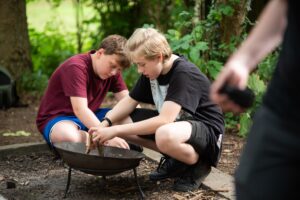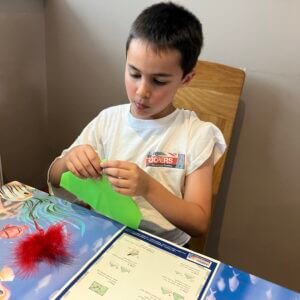At Little Troopers, we think it’s really important that all schools feel able to provide targeted support for service children. The Armed Forces Education Trust is one organisation that can help schools fund initiatives and resources that help to make a difference to military children in school. In this edition of ‘meet the expert’, Charmian Hickman, Chief Executive of the Armed Forces Education Trust, tells us more about how the Trust supports schools and shares her tips on how to maximise budgets when it comes to support service children in education.
Tell us more about the Armed Forces Education Trust
The Armed Forces Education Trust is a charity working for children and young adults whose education has been compromised or put at risk as a result of parents’ past or current service in the British Armed Forces. The grants we give make a difference to young lives, helping improve their educational attainment.
In what ways can military life compromise children’s education?
One of the areas where children may be disadvantaged by their parent’s service is when mobility prevents timely diagnosis of special educational needs (SEN). Sometimes moving schools many times during Key Stage 1 can mean that service children with SEN do not get the funding or support they need. The Trust has been able to help some of these children with interim support while evidence is compiled by the school to get local authority funding.
The mobility service children encounter in general, often having to move schools during a term or even between nations, is a factor in compromising their education, in particular if this happens during key stages such as during the GCSE or A-Level years. We have been able to help children having to move between Scotland and England at these times, for example, with additional funding to schools to help service pupils catch up or fill their gaps in learning.
Better understood by some schools near military bases is the stress on families in dealing with having parents/careers deployed to operational roles and this is often transmitted to stress in school life for the service pupil. However, for a vast number of service pupils their school may be unaware of this.
How can schools proactively support military children through these challenges?
One of the things that helps service children most is schools understanding them and their needs and how this may differ from other children. This also helps teachers to incorporate their differences into the classroom, which can benefit the whole class. Schools can also invite serving parents in to share their experiences.
Can schools apply to the Armed Forces Education Trust for funding to cover military child resources, for instance, our Little Troopers Resource Pack for primary schools?
Of course! The main thing that our trustees are looking for is that the school has looked at its current practice in supporting service children and identified the areas that still need support. The SCiP Thriving Lives Toolkit can be really helpful for this.
What level of funding can schools apply for?
The Trust considers any applications for funding regardless of the amount. What we are looking for is an identified need that is a result of the fact that the educational attainment of this group of children has been put at risk due to their parent’s service, and there is no alternative funding available to meet this need.
Does the Armed Forces Education Trust support schools with small numbers of service children, as well as schools near military bases?
The Trust gives grants to any schools with service children, no matter how many there are or where they are located. One successful example was where a school had six service children, with parents in different services, and brought them together for a weekly art club led by a local artist. They benefitted from mutual support and shared experiences and produced a wonderful tri-service mosaic for the school.
Do you think service children benefit from having tailored resources that are specifically about military life, such as those provided by Little Troopers?
Headteachers and their teams seem to be busier now than ever before and having ready-made resources, that deal knowledgeably with service life and understand the needs of service children and their differences means that the teachers don’t have to spend time researching and developing the lessons themselves!
Schools in England receive Service Pupil Premium for each service child. How do you think schools can best use this budget?
For some schools with small numbers of service children it can be difficult to use this budget effectively. Where possible, locally, we try and help these schools band together to use their SPP collectively. If this is not possible then the availability of low-cost resources such as those provided by Little Troopers are invaluable and money is also well spent on books for service children. Where numbers are greater, schools can use SPP effectively to employ a teacher or teaching assistant to manage transitions into the school to help service children move seamlessly into their new school or to employ an ELSA to support service children with the difficulties they may experience during a parental deployment.
What other initiatives do you think work really well to support service children?
The Trust has given grants for a wide range of initiatives from emotional support such as Thrive and ELSA, to Maths and English interventions to cope with the gaps in learning that mobility can bring. We have also seen schools give excellent support to some service children through Play Therapy.
What is your one top tip for schools when it comes to supporting service children?
Embrace what service children have to offer the school and their fellow classmates! They often come with a wide range of different experiences and are likely to be resilient and independent with strong leadership skills. And they usually have good communication skills and are team players.






